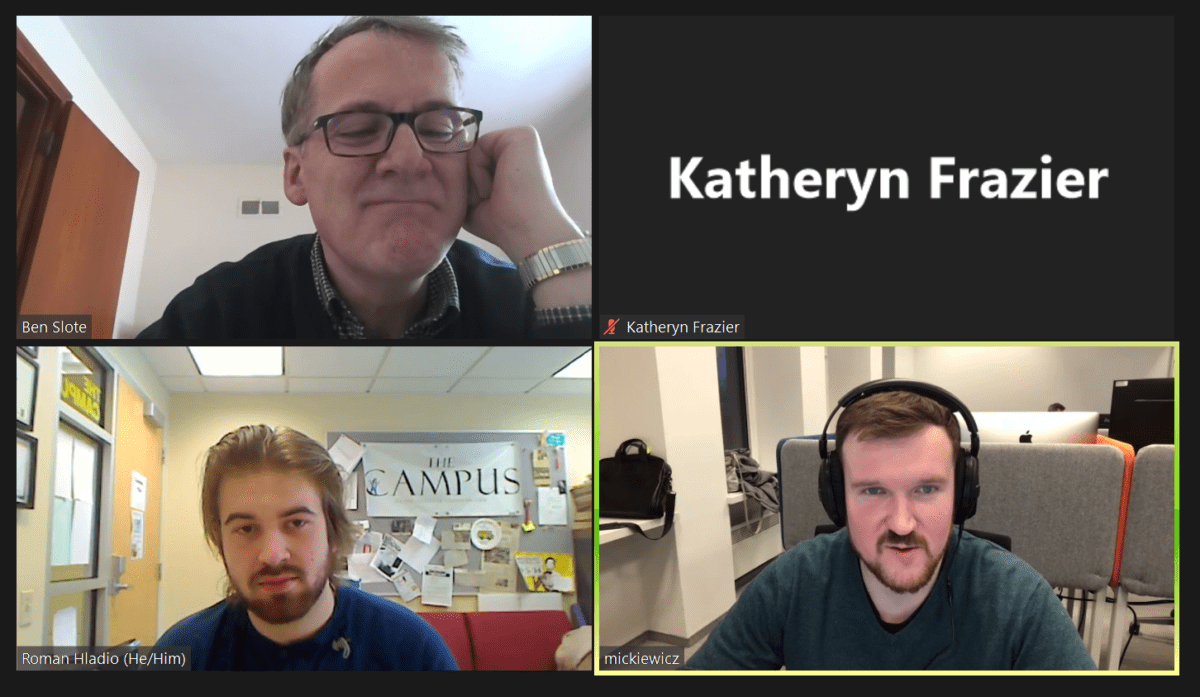
Allegheny College Student Interviews International Journalist Through Journalism and Democracy Class
A journalism and democracy course led by Allegheny College Professor of English Ben Slote took an unexpected and memorable turn for one student. Roman Hladio ’23, an English major with a journalism in the public interest minor, had the opportunity to interview a dissident Belarusian journalist living in Poland.
The interview was a natural outgrowth of the course’s diverse, international focus. Each student in the class was tasked with following and discussing content from different news outlets. The students’ final group projects were a collection of opinion pieces, videos, and podcasts that explored news stories with significant social implications. Their final projects can be viewed here.
“This class has given me an entirely new outlook on the news and media in general,” says Katie Burgess ’23, a computer science major who is minoring in economics. “Now, when I read the news or hear information on different websites, I analyze it in a more critical and aware fashion. I pay attention to the source, the author, the way it is framed, and other articles written on the same subject.”
After the class ended, curiosity about international journalism persisted, especially for Hladio. Slote connected Hladio with a dissident Belarusian journalist, Zmicier Mickiewicz, through Allegheny Professor of Chemistry Shaun Murphree, who is spending a year in Poland on a Fulbright fellowship.
Mickiewicz resides in Poland to avoid arrest by the repressive pro-Russian regime of his home country, Belarus. The journalist called it “a tactical retreat,” allowing him to safely report the truth of what was going on. He likens his experience as an exiled Belarusian journalist to both a civil activist and an enemy of the authorities.
“I was really interested in what Mr. Mickiewicz had to say about journalists as social activists,” Hladio says. “It’s a journalist’s job to do something with the information they’re provided to not cede to power structures.”
Mickiewicz explained to Hladio that Belarusians share a similar fight with the Ukrainians to defend their independence. The Belarusian government, he says, has sidestepped democracy and doesn’t respect Belarusian freedom or nationalism.
Slote, who sat in on the call, says, “Here is a person utterly immersed in the crucible of injustice, committing every hour of his day to fight through reporting the truth. I was struck by how cheerful he was and how charming.”
An example of corruption that Mickiewicz highlighted was when the Belarusian government imprisoned citizens who spoke freely against the government over the instant messaging service Telegram. As a result, Mickiewicz feels he cannot return to Belarus until the current pro-Russian administration is discontinued. Mickiewicz noted during the interview that many people didn’t know what was happening in Belarus.
“If learning comes from experiencing different things, we’re missing out on a lot of learning opportunities because we limit our view to the United States or North America,” Hladio says. ”Broadening our focus would benefit students and society greatly.”